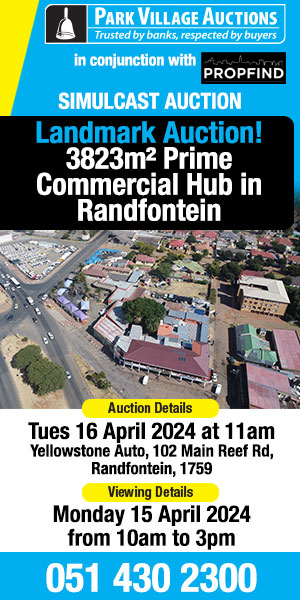
The year-on-year average house price growth for the Western Cape measured 6.2% in the 1st quarter, slower than the 7.7% rate of the previous quarter and now significantly slower than the 10.6% multi-year high recorded in the 1st quarter of last year.
However, despite slowing, the Western Cape’s average house price growth for the 1st quarter remained well above other major regions, the next fastest growth rate being a tame 1.1% year-on-year growth in the FNB Smaller 5 Provinces House Price Index (includes Mpumalanga, North West, Limpopo, Free State and Northern Cape Provinces). This was followed by KZN Province with 1% growth, Gauteng with 0.7%, and the Eastern Cape with a negative -1% rate.
Despite the Western Cape having done very well in recent years in terms of confidence in the region and its ability to attract middle to higher income repeat home buyers from other major regions, ultimately the strong real house price growth in much of this region should lead to a mounting affordability challenge, and we believe that this may have been happening in recent quarters.
Such an affordability challenge would be more relevant for financially limited 1st time buyers as opposed to more financially strong repeat home buyers, and the FNB Estate Agent Survey has for some time pointed to a very low rate of 1st time home buying in the City of Cape Town Metro.
1st time home buyers in Cape Town are believed to have made up a lowly 8% of total home buyers during the 2 summer quarters of 2016/17. By comparison Joburg’s estimate was a far higher 27% and Tshwane a healthy 21%.
It is in this 1st time buying percentage that we believe we are seeing indications of a greater affordability challenge of late in the Western Cape, as opposed to the other “slower moving” major residential markets.
Comparing the average price of homes transacted, according to the FNB House Price Indices, the Western Cape is the most expensive with an average price of R1.421 million, with Gauteng the 2nd most expensive at R1.041 million.
Since the beginning of 2010 (the start of the post-2008/9 recession recovery), the average house price for the Western Cape has risen cumulatively by 78.2%. By comparison, the next strongest growth was in KZN, with a far more moderate 46.4% and Gauteng with 41.2% over the same period.
CITY OF CAPE TOWN METRO HAS BEEN A MAJOR WESTERN CAPE DRIVER
Examining our FNB Major Metro House Price Indices, we see the slowest ones in the 4th quarter of 2016 to have been Nelson Mandela Bay with a -0.8% year-on-year decline, and Ethekwini with +0.2% change. At the top end of the growth scale, the City of Cape Town’s 8.2% year-on-year rate continues to be a major driving force behind the broader Western Cape house price growth..
Also pointing to Ethekwini and Nelson Mandela Bay Metros having the weaker markets of the major regions was the FNB Estate Agent Survey’s estimated average time of homes on the market prior to sale.
For the 2 summer quarters of 2016/17, the estimated time on the market in Ethekwini was the longest of the major metro regions, to the tune of 17.29 weeks, followed by Mandela Bay’s estimated 16.64 weeks.
Interestingly, of late has been Tshwane Metro, which although not having significant house price growth appears to have a vibrant market with the lowest average time of homes on the market to the tune of 10.14 weeks. This average beats Cape Town’s estimated 13.14 weeks.
In short, the Western Cape continued to have by a significant margin the fastest average house price growth in the 1st quarter of 2017, compared to the rest of the country’s major residential regions. However, mounting affordability challenges in that province are believed to have caused some slowing in its house price growth in recent quarters.
At the other end of the scale, it appears that the Eastern Cape and KZN remain the weaker of the major provinces, which may have had to do with a combination of a high dependency by their economies on the Manufacturing Sector, which has been a weak sector in the economy in recent years.









